
The Picture of Dorian Gray is a philosophical fiction and gothic horror novel by Irish writer Oscar Wilde. A shorter novella-length version was published in the July 1890 issue of the American periodical Lippincott's Monthly Magazine. The novel-length version was published in April 1891. It is regarded as a classic of Gothic literature and has been adapted for films and stage performances.

Dave Eggers is an American writer, editor, and publisher. He is best known for his 2000 memoir, A Heartbreaking Work of Staggering Genius, which became a bestseller and was a finalist for the Pulitzer Prize for General Nonfiction. Eggers is also the founder of several notable literary and philanthropic ventures, including the literary journal Timothy McSweeney's Quarterly Concern, the literacy project 826 Valencia, and the human rights nonprofit Voice of Witness. Additionally, he founded ScholarMatch, a program that connects donors with students needing funds for college tuition. His writing has appeared in numerous prestigious publications, including The New Yorker, Esquire, and The New York Times Magazine.
Creative nonfiction is a genre of writing that uses literary styles and techniques to create factually accurate narratives. Creative nonfiction contrasts with other non-fiction, such as academic or technical writing or journalism, which are also rooted in accurate fact though not written to entertain based on prose style. Many writers view creative nonfiction as overlapping with the essay.

New York is an American biweekly magazine concerned with life, culture, politics, and style generally, with a particular emphasis on New York City.
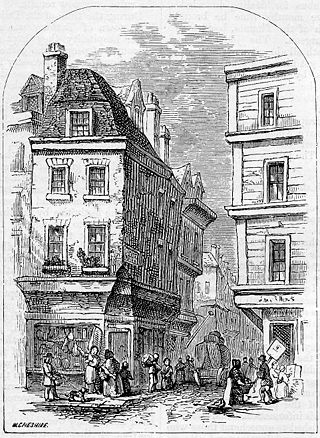
Until the early 19th century, Grub Street was a street close to London's impoverished Moorfields district that ran from Fore Street east of St Giles-without-Cripplegate north to Chiswell Street. It was pierced along its length with narrow entrances to alleys and courts, many of which retained the names of early signboards. Its bohemian society was set amidst the impoverished neighbourhood's low-rent dosshouses, brothels and coffeehouses.
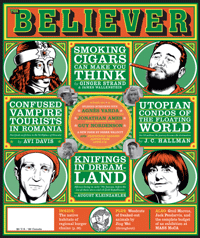
The Believer is an American bimonthly magazine of interviews, essays, and reviews, founded by the writers Heidi Julavits, Vendela Vida, and Ed Park in 2003. The magazine is a five-time finalist for the National Magazine Award.
William J. Schaff Jr. is an American artist and musician based in Warren, Rhode Island and Oakland, California. He is known for artwork for the bands Okkervil River, Songs: Ohia, Godspeed You! Black Emperor, and The Mighty Mighty Bosstones.

n+1 is a New York–based American literary magazine that publishes social criticism, political commentary, essays, art, poetry, book reviews, and short fiction. It is published in print three times annually with regular articles being published online. Each print issue averages around 200 pages in length.
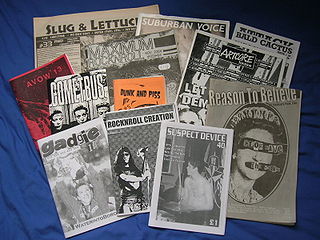
Punk visual art is artwork associated with the punk subculture and the no wave movement. It is prevalent in punk rock album covers, flyers for punk concerts and punk zines, but has also been prolific in other mediums, such as the visual arts, the performing arts, literature and cinema. Punk manifested itself "differently but consistently" in different cultural spheres. Punk also led to the birth of several movements: new wave, no wave, dark wave, industrial, hardcore, queercore, etc., which are sometimes showcased in art galleries and exhibition spaces. The punk aesthetic was a dominant strand from 1982 to 1986 in the many art galleries of the East Village of Manhattan.

Ron Kolm is an American poet, writer, editor, archivist, and bookseller based in New York City. Known as "one of the mainstays of the downtown (literary) scene," Kolm is also a founder of the Unbearables, a "ragtag bunch of downtown poet-troublemakers."

Gregory Sams is a UK-based, American-born, fractal artist, author and publisher.

"The Imp of the Perverse" is a short story by 19th-century American author and critic Edgar Allan Poe. Beginning as an essay, it discusses the narrator's self-destructive impulses, embodied as the symbolic metaphor of "the Imp of the Perverse". The narrator describes this spirit as the agent that tempts a person to do things "merely because we feel we should not."
Grub Street is a street in London's Moorfields district, and one-time home to impoverished "hack writers".

Alexander Yukhymovych Sirota is a Ukrainian photographer, journalist, filmmaker. He writes in Russian and Ukrainian. As a former resident of Pripyat, he is an eyewitness and a victim of the 1986 Chernobyl disaster. He has devoted many articles, photographs, and video reports to the city of Pripyat and to the Chernobyl catastrophe. He is the editor-in-chief of the internet project "pripyat.com" and the president of the International Public Organization "Center Pripyat.com". In May 2008, he became the winner of the ІХ-th international competition "Golden George" of films, TV-programs, and internet projects about protective law and law enforcement. In that competition, Alexander won "The Big Tape of George" award for his website devoted to Chernobyl. He is a member of the Union of Journalists of Ukraine since 2008 and a member if International Federation of Journalists.

MacGruber is a 2010 American action comedy film based on the Saturday Night Live sketch of the same name, which itself was a parody of action-adventure television series MacGyver. Jorma Taccone of the comedy trio The Lonely Island directed the film, which stars Will Forte in the title role; Kristen Wiig as Vicki St. Elmo, MacGruber's work partner and love interest; Ryan Phillippe as Dixon Piper, a young lieutenant who becomes part of MacGruber's team; Maya Rudolph as Casey, MacGruber's deceased wife; and Val Kilmer as Dieter von Cunth, the villain.
GrubStreet, Inc. is a non-profit creative writing center located in Boston, Massachusetts that hosts workshops, seminars, consultations, and similar events. It also offer scholarships.
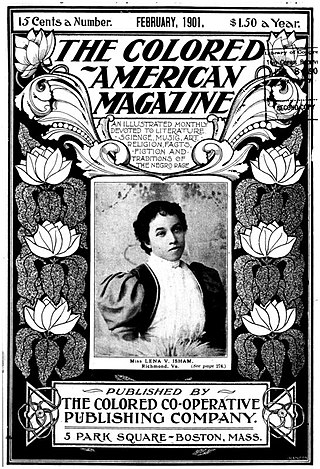
The Colored American Magazine was the first monthly publication in the United States that covered African-American culture. It ran from May 1900 to November 1909 and had a peak circulation of 17,000. The magazine was initially published out of Boston by the Colored Co-Operative Publishing Company, and from 1904 forward, by Moore Publishing and Printing Company in New York. The editorial staff included novelist Pauline Hopkins who was also the main writer. In a 1904 hostile takeover involving Booker T. Washington, Fred Randolph Moore purchased the magazine and replaced Hopkins as editor.

A Masque of Poets is an 1878 book of poetry published in the United States. The book included several poems, all published anonymously, including one by Emily Dickinson. Names were not included in the compilation so that the original works could be judged on their own merit without any preconceived notions about the poet.
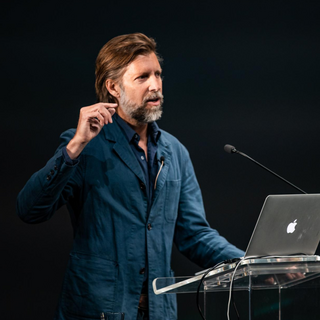
James Nestor is an author and journalist who has written for Outside, Scientific American, Dwell, National Public Radio, The New York Times, The Atlantic, Men's Journal, the San Francisco Chronicle Magazine, and others. His 2020 nonfiction book, Breath: The New Science of a Lost Art, was an international bestseller, debuting on the Wall Street Journal and Los Angeles Times bestseller lists and spending 18 weeks on the New York Times Best Sellers in its first year of release. Breath won the award for Best General Nonfiction Book of 2020 by the American Society of Journalists and Authors and was a finalist for the Royal Society Science Book Prize. Breath was translated into more than 35 languages in 2022.
Gray is an American experimental band formed by artist Jean-Michel Basquiat and filmmaker Michael Holman in 1979, of whom filmmaker Vincent Gallo was also a member. The group was influenced by the members' artist backgrounds and the sonic experimentation of their contemporaries in New York's no wave scene. Gray performed at venues such as the Mudd Club and CBGB which were the epicenter of New York's underground scene in the late 1970s and early 1980s.















